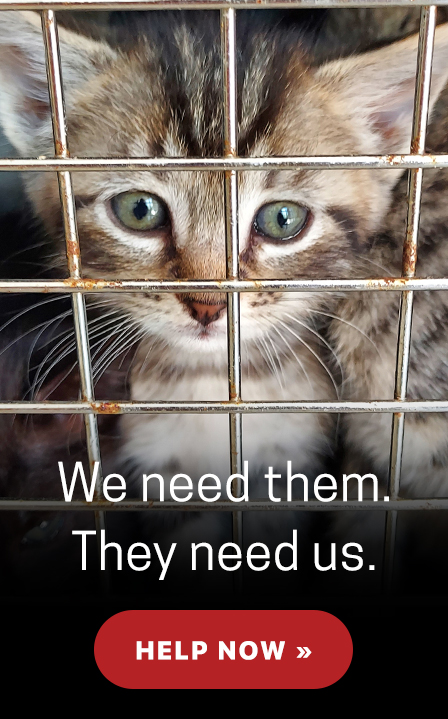CHICAGO, ILLINOIS, April 15, 2020 — The coronavirus pandemic has introduced a good deal of uncertainty into our lives, as well as the lives of our pets. As people shelter at home, adopt new pets or foster dogs for sick family and friends, now is the time to reinforce safety and responsible pet ownership.
National Dog Bite Prevention Week (NDBPW) is April 12-18, 2020. Members of the National Dog Bite Prevention Week Coalition include American Humane, the American Veterinary Medical Association (AVMA), State Farm®, Insurance Information Institute (I.I.I.), and the Victoria Stilwell Academy for Dog Training and Behavior. The coalition joins forces each year to draw attention to how people can reduce the number of dog bites.
During this pandemic, American Humane and shelters and rescues around the country have been encouraging people to foster or adopt a pet from a shelter while they are self-isolating. “We can save lives of shelter animals, find a ‘pandemic pet’ to help us through this period of loneliness and isolation, and do it safely,” says Dr. Lesa Staubus from American Humane. Because of the high risk involving dogs, babies, and children, American Humane offers a free online booklet called Pet Meets Baby that provides families with valuable information on introducing a new child to a home with a dog.
Here are some tips to help you and your pets cope while sheltering at home:
- Create a den-like space or ‘safe zone’ in your home that is a “dog only” zone. This can be a crate where the door always remains open or a quiet location for your dog when they need some space.
- Small children should be supervised around any dog. To make it easier, you can use baby gates to keep dogs and kids separated if you can’t actively supervise them.
- This is the time to teach your dog some new skills. Challenge your dog to learn new cues and if you need the help of a trainer, many now offer virtual consultations.
- If you can take your dog out for a walk make sure you keep them on leash. Do not allow your pet to socially interact with other dogs or people. While humans are observing social distancing rules, they should help their dogs do the same.
- Having a plan in place for your pets is important. Individuals who become too sick or require hospitalization will need to have someone to take care of their animals while they heal. As with any disaster preparedness plan, have a “bug out” bag ready.
Members of the NDBPW Coalition will share information during several webinars this week focused on how COVID-19 is impacting pets and pet owners. Experts will provide safety tips for sheltering at home with dogs, how to support animal shelters and rescues, and release 2019 dog-related injury claims data.
Wednesday, April 15 at 10:00 AM CST/11:00 AM EST – Zoom webinar for media and bloggers
https://zoom.us/webinar/register/WN_iN5mlpuXQSmHXbopavSXtQ (registration required)
Friday, April 17 at 1:00 PM CST/2:00 PM EST – Zoom webinar for the general public
https://zoom.us/webinar/register/WN_9cO7OQTVQXSdZb2UXs9ufQ (Registration required)
American Veterinary Medical Association (AVMA)
The AVMA estimates there are approximately 77 million dogs in U.S. homes and each year 4.5 million people are bitten or injured by dogs. In noting that 56% of all dog bites involve children, Dr. John Howe, President of the American Veterinary Medical Association, says, “It’s important to remember that animals and children – particularly young children – should always be supervised, especially during this time. Be mindful of how your child interacts with dogs so they learn to be gentle from the beginning, and make sure your dog has a safe, comfortable space in the house to be alone and away from kids if they choose.” Dr. Howe adds that if dog owners notice changes in their pet’s behavior, including aggression, they should reach out to their veterinarian for a consultation. “It could be a behavioral issue related to changes in the family’s lifestyle, or it could be the result of an underlying medical condition.”
For critical information related to animal welfare and COVID-19, the AVMA has information available at https://www.avma.org/resources-tools/animal-health-and-welfare/covid-19
State Farm is one of the few insurance companies that does not have a breed restriction list. The insurer does not exclude homeowner or renter insurance coverage because of the breed of dog owned. In 2019, State Farm alone paid $146 million dollars for 3,340 dog bite and injury claims. Many of these incidents could have been prevented. To educate owners about being responsible with pets, State Farm joined forces with the Victoria Stilwell Academy to create a free online course called Being Good Pet Neighbor.
Insurance Information Institute (I.I.I.)
Dog bites and other dog-related injuries accounted for nearly one third of all homeowners’ liability claim dollars paid out in 2019, costing nearly $797 million, according to the Insurance Information Institute (I.I.I.) and State Farm. This represents an 18% increase compared to payments in 2018. An analysis of homeowners’ insurance data also revealed the number of dog bite claims nationwide increased to 17,802 in 2019, a 2.9% increase compared to 2018.
Positively.com and the Victoria Stilwell Academy of Dog Training and Behavior
Stress can affect pets and cause them to feel anxiety. In some cases, dogs will exhibit anxious behaviors such as barking, aggressive behavior, or destructive behavior. According to Victoria Stilwell, CEO of Positively.com and the Victoria Stilwell Academy of Dog Training and Behavior, the coronavirus pandemic has affected pets, too. “Dogs that are used to kids being at school and adults at work are now finding themselves surrounded by their families 24/7,” says Stilwell. “Most welcome the company but some dogs are having a hard time adjusting to the constant noise, attention and lack of space.”

